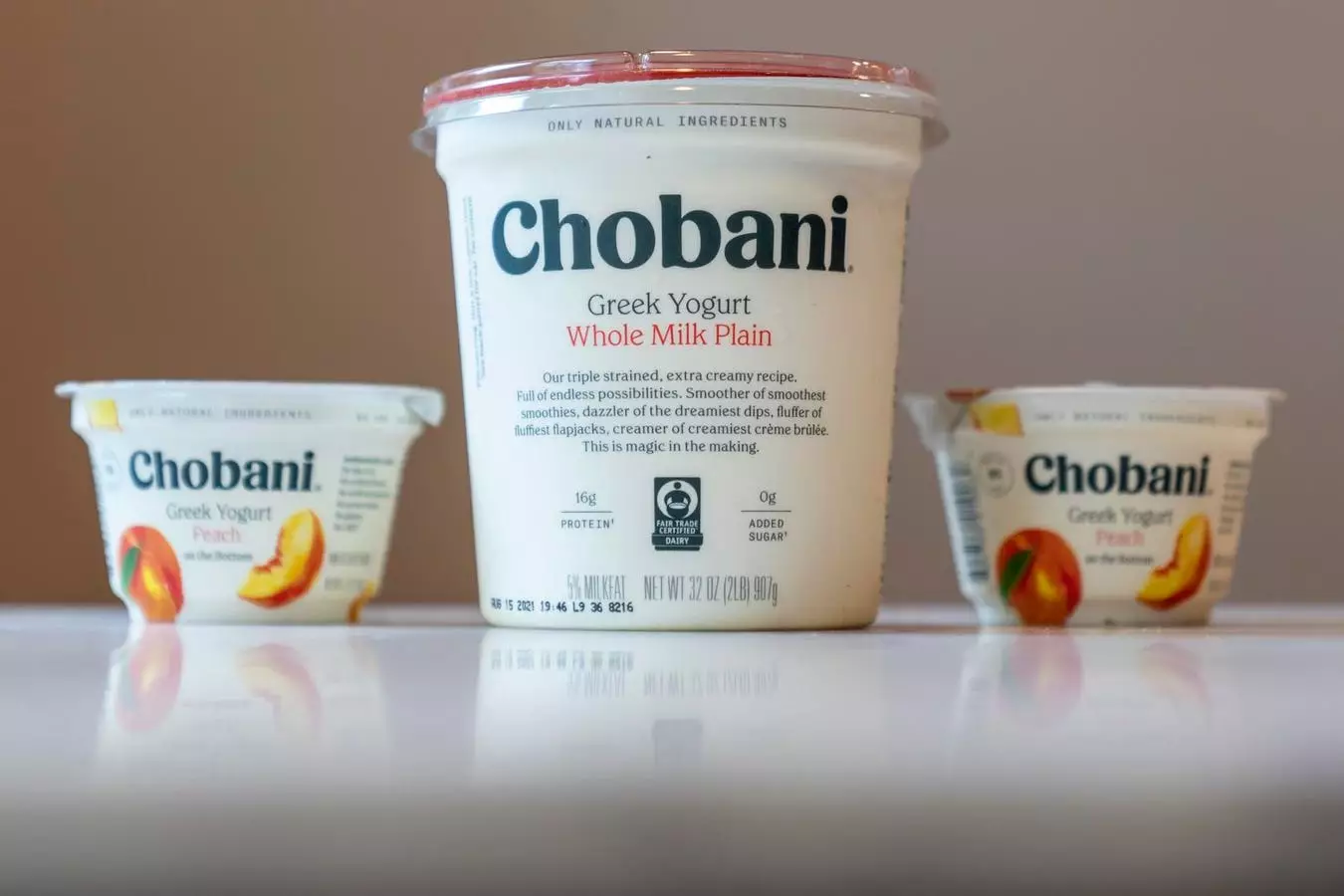In an age where the news often presents a barrage of negativity and uncertainty, it is refreshing to witness a compelling story of hope and resilience in the food industry. Hamdi Ulukaya, the visionary founder of Chobani, is in the spotlight for his impressive commitment to shaping a sustainable food future. Instead of retreating amidst challenges like trade wars and economic instability, Ulukaya is taking bold steps to invest a staggering $1.2 billion in infrastructure. This not only signals a robust belief in the Northeastern dairy industry’s potential but also emphasizes a fundamental truth about the role of food in society.
The majority of this financial infusion will go towards building a state-of-the-art dairy plant in upstate New York—a decision that serves multiple purposes. It bolsters local economies, lends support to struggling dairy farmers, and reinforces the importance of providing quality nutrition to communities. Ulukaya acknowledges the gravity of this responsibility, stating, “We could make all the advances in life, but if we can’t feed our children good food, that’s not a success.” This perspective elevates the conversation about food beyond mere sustenance; it becomes a matter of social justice and well-being.
Resilience in the Face of Industry Challenges
The Northeastern dairy industry has faced increasing pressure for years, as larger food companies shift operations to regions with different logistical advantages. However, Ulukaya’s investment offers a beacon of hope for local dairy farmers and consumers alike. By focusing on domestic production, he is cultivating a sense of community and sustainability that often gets overshadowed in discussions about globalization and corporate consolidation.
Ulukaya’s investment is also notable for its ambition, as he plans to invest an additional $500 million to expand operations in Idaho. His commitment underscores not just a monetary investment but a deep-seated belief that agricultural innovation can lead to social progress. In a world rife with distrust in big food corporations, Ulukaya’s efforts can restore faith in the concept of ethical entrepreneurship.
Fluoride Controversies and Public Health Responses
Amidst the hopeful tones set by Ulukaya’s endeavors, the national conversation around food and health continues to evolve in unexpected directions. Recent decisions by states like Utah and Florida to ban fluoride from drinking water have ignited a fierce debate. This move, criticized by health experts, raises questions about the balance between public health and individual rights—a conversation that reverberates through the food and agriculture sectors as well.
As the discourse evolves, figures like Robert F. Kennedy Jr. emerge as notable influencers, pushing back against accepted norms like fluoride inclusion in public drinking water and petroleum-based food dyes. While not seeking a universal ban, Kennedy’s initiatives call for a reexamination of what we consider safe in our food systems and highlight the need for transparency. As I have personally witnessed within the food production sector, the hidden chemicals lurking in processed foods warrant scrutiny.
Championing Accessible and Sustainable Food Systems
One cannot overlook the broader implications of Ulukaya’s investment and the surrounding debates on health access. In my recent discussions with MBA students at Harvard Business School, I emphasized how creating a better food system requires innovative thinking. Future leaders must envision infrastructure to support not just efficiency but also equity in food access. This could manifest in various forms—from commercial kitchens that small food business owners can utilize, to mobile slaughtering facilities designed to support local meat producers.
Moreover, the conversation should not be limited to traditional financing models. Emerging businesses that aim to feed communities must explore alternative funding avenues, as conventional venture capital often necessitates quick returns, which undermines long-term sustainability efforts. Entrepreneurs must think of the public good as they develop business practices, laying the groundwork for a public food sector that champions universal food access.
A Call for Collective Action in Food Production
In these times of upheaval, it is crucial to remember the power of collective action. As Will Harris of White Oak Pastures suggests, the future of food production must focus on replicable, practical solutions rather than solely pursuing scalability. The urgency of climate change and societal needs necessitates a shift in how we engage with food systems, moving away from monolithic strategies towards community-oriented approaches.
In times of uncertainty, initiatives like Chobani’s enormous investment serve as a reminder that we can forge paths towards a more sustainable future through thoughtful action and ethical business practices. By aligning economic opportunities with community needs, we can foster an environment where food equity is prioritized and nourished—a goal worthy of pursuit.
The conversation about food, health, and sustainability is ongoing. As we explore new avenues and continually challenge existing paradigms, we must remain vigilant and proactive in our engagements, ensuring that the future of food is grounded in both sustainability and accessibility.


Napsat komentář